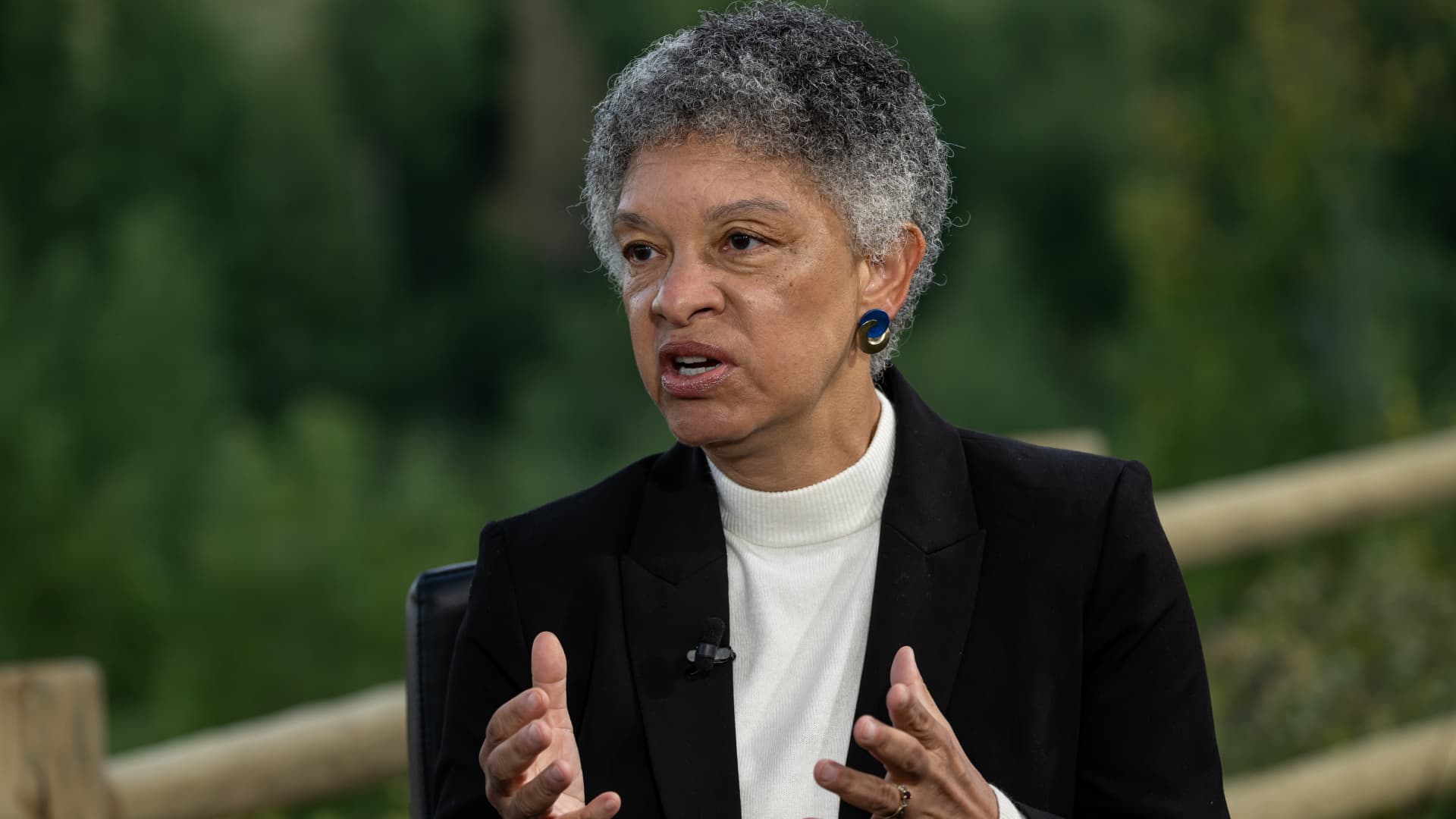Susan Collins, president and chief executive officer of the Federal Reserve Bank of Boston, during a Bloomberg Television interview at the Kansas City Federal Reserve’s Jackson Hole Economic Policy Symposium in Moran, Wyoming, US, on Friday, Aug. 22, 2025.
David Paul Morris | Bloomberg | Getty Images
Boston Federal Reserve President Susan Collins on Wednesday said she will be reluctant to support further interest rate cuts anytime soon with inflation still high and policymakers hampered by a lack of data due to the government shutdown.
“Given my baseline outlook, it will likely be appropriate to keep policy rates at the current level for some time to balance the inflation and employment risks in this highly uncertain environment,” the central bank official said in remarks delivered in her home district. “I see several reasons to have a relatively high bar for additional easing in the near term.”
Collins’s comments are notable because she is a voting member of the rate-setting Federal Open Market Committee. Her remarks put her on the hawkish side of the rate debate, highlighting a fissure among committee members that led Chair Jerome Powell to say in October that a cut at the December meeting is not a foregone conclusion, despite market pricing of a high probability.
Collins supported the quarter percentage point rate cut at the October meeting but indicated that further easing could thwart the Fed’s efforts to get inflation lower.
While Collins said softness in the labor market “bears watching,” she added that the risks of inflation staying above the Fed’s 2% target warrant caution.
“Against this backdrop, providing additional monetary support to economic activity runs the risk of slowing – or possibly even stalling – the return of inflation to target,” she said. “And with resilient demand, the downside risks to employment, while present, do not seem to have increased further since the summer.”
Collins also noted the role that the government shutdown is playing in her decision making. The impasse appears to be over, but White House press secretary said Wednesday that key reports on inflation and employment may not be available at all for October.
“Absent evidence of a notable labor market deterioration, I would be hesitant to ease policy further, especially given the limited information on inflation due to the government shutdown,” Collins said.
The FOMC in October voted 10-2 for the cut. Governor Stephen Miran voted no because he wanted a bigger reduction, while Kansas City Fed President Jeffrey Schmid opposed because he favored no cut.





